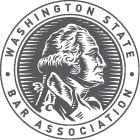When Procrastination Rears Its Ugly Head
Read This Today
 Procrastination and lawyering seem to go hand in hand. Legal work is intricate, precise, and hard to communicate to most people. This can leave you feeling alone with your burden. There are so many elements of lawyering such as being organized, using time efficiently, being a productive writer, and being financially savvy that may not be related to why you became a lawyer in the first place. You are likely to think, “I didn’t think it would be this way.” You may feel abused by your long hours in the office thinking about other things you would like to do. If you don’t attack these foreign skill sets head-on it can generate an avoidant relationship with your work where you procrastinate important responsibilities.
Procrastination and lawyering seem to go hand in hand. Legal work is intricate, precise, and hard to communicate to most people. This can leave you feeling alone with your burden. There are so many elements of lawyering such as being organized, using time efficiently, being a productive writer, and being financially savvy that may not be related to why you became a lawyer in the first place. You are likely to think, “I didn’t think it would be this way.” You may feel abused by your long hours in the office thinking about other things you would like to do. If you don’t attack these foreign skill sets head-on it can generate an avoidant relationship with your work where you procrastinate important responsibilities.
Procrastination can be draining, leading to inefficiency and wondering why work is taking so long. At its most pernicious you may experience an inability to concentrate or organize your thoughts. I definitely had my share of nights like this writing my dissertation. This can lead to panic about everything one has to do. But keep in mind, procrastination is the mind’s striving for health. It is a coping strategy when work becomes intolerable. In this article I’ll offer ways of tapping your self-confidence, as well as practical suggestions like using your schedule and workspace more effectively.
So Why Do I Procrastinate?
Procrastination is an avoidance behavior, so it’s not surprising that the reasons one procrastinates are often not conscious. I have worked in therapy with lawyers hooked on hulu.com, facebook, and news sites, rather than writing the brief right before them. I also have clients with piles of old, unresolved cases who live in dread of confronting these papers. Since the reasons for procrastination will differ depending on the lawyer, the first step is to stop oneself and say, “Why do I procrastinate?” Since the impulse to stop working can be sudden, the answers will not always be clear. In this case it is important to ask yourself, in that split second before leaving your computer to satisfy your chocolate crave, “what were you thinking?” Take a second to answer these questions. This is the starting point.
I can’t do this?
The automatic thought that led you to flee your work often has something to do with self-confidence. The words may be something along the line of “I can’t do this.” The trick is to be able to hear this thought, acknowledge it, and come up with a practical solution. Affirming self-statements make a difference here. Use a mantra that reminds you of your abilities. If you’ve thought about your mission statement as a lawyer, this is when to use it. The trick is to gently encourage yourself. Steve Pavlina, a motivational author, discusses replacing the words “I have to do this” with “I want to do this” (if only to have it done). That way you don’t feel bullied by your work, and can feel autonomous. Your office should be dotted with visual reminders of your previous successes and abilities. I remind my clients to keep your trophies close. These are places to turn in moments of inevitable doubt.
Perfectionist? Use Your Schedule.
Many procrastinators are perfectionists who expect to hatch ideas from their minds all at once and perfectly formed. That is a lot of pressure to place on oneself. This is especially true of early career lawyers who place the law on a pedestal and see themselves as an ant crawling up the side. Over time you will learn to evaluate your effort less by your precision crafted legalese, and more by the outcome of your work. According to Pavlina, a way for perfectionists to take the pressure off is to replace the words “finish it” with “begin it”. Work with a matter in small, bite-sized chunks.
You might expect successful lawyers to create challenging goals for themselves, but the opposite has been shown to be true. Peak performers generally set easier goals than most people. That way they can experience a continuous sense of efficacy. Small, realizable goals followed by a reward. The trick with procrastination is to use the time away from one’s work to be rejuvenated and not avoidant of responsibilities. Successful people generally use their schedule not just for all of their onerous responsibilities, but for things to look forward. These plans can help make your hard work feel worthwhile. A good meal, tickets, a massage, you name it.
Bringing Sanctity to Your Workspace.
Procrastination is in fact an act of prioritization. You are prioritizing your cognitive freedom, whether it involves navel gazing or playing sudokus, over your work. This sometimes happens when you are burdened by so many responsibilities that a step in any given direction leads you to feel like they are neglecting several other matters. Cleaning rituals before periods of productivity can serve as a healthy pep rally, and can help sharpen your focus. Your desk can be seen as a metaphor for your mind. If your office space is cluttered with several disorganized matters, it is likely to be mirrored with several ideas competing for airspace in your mind (and vice versa). Clean up can be a gentle, somewhat mindless ritual of moving papers around. This can help refine your focus to a single point: the matter you need to work on now. Having a system whereby you are sure that matters will be attended to can prevent the deepest form of anxiety: not knowing what you may be forgetting.
You may avoid starting a matter because the effort required to find the papers, reboot your slow computer, and return several non-urgent calls is distracting. The trick is to keep your office well oiled, with several staging areas, so that you know that each area of work has room to breathe and is living in the right corner of your small town. And then be sure to shut off the phone, and flip the Do Not Disturb sign. There are many areas in life that multi-tasking is a wonderful skill, but writing briefs is not one of them.
Dan Crystal, Psy.D., is a clinical psychologist and Program Manager of the WSBA’s Member Wellness Program.






